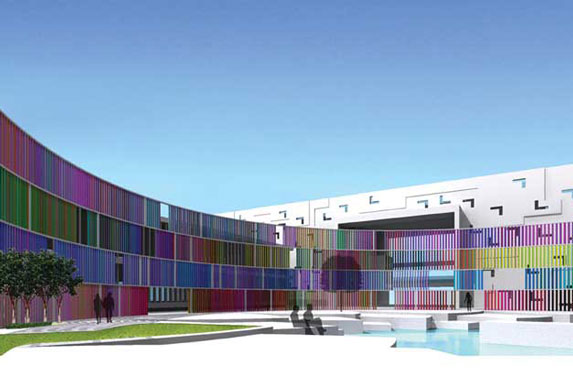National Institute of Fashion Technology was set up in 1986 under the aegis of the Ministry of Textiles, Government of India. It has emerged as the premier Institute of Design, Management and Technology, developing professionals for taking up leadership positions in fashion business in the emerging global scenario.
NIFT has been granted statutory status under the act of Parliament of India in 2006, empowering the Institute to award degrees and other academic distinctions. The Institute is a pioneer in envisioning and evolving fashion business education in the country through a network of fifteen professionally managed domestic centres at Bangalore, Bhopal, Bhubaneswar, Chennai, Gandhinagar, Hyderabad, Jodhpur, Kangra, Kannur, Kolkata, Mumbai, New Delhi, Patna, Raebareli and Shillong.
NIFT has set academic standards and excelled in thought leadership by providing a pool of creative genius and technically competent professionals. The Institute provides a common platform for fashion education, research and training.
The curriculum at NIFT allows students to easily blend into a global network, as well as acquire a greater appreciation of local industry trends. The multidisciplinary and broad-based structure aims at an all-round development of students. Deriving from the changing paradigms of industry and commerce, its content as well as the methodology is constantly reviewed by academia and industry experts.
NIFT offers four-year bachelor and two-year master programmes in the areas of Design, Management and Technology.
Pedagogy Teaching at the Institute incorporates a cohesive, contextual and nurturing environment for learning. The emphasis is on self-motivated learning by using information, experience and practice. The teaching methodology aims at using the inputs from core functional areas to inter-disciplinary issues and problem solving. Students undertake classroom and workshop assignments, conduct field observations, make presentations and participate in group discussions and seminars and are encouraged to develop industry linkages. Evaluation Continuous evaluation and assessment is undertaken throughout the semester by way of assignments, projects, internships and presentations. Juries comprising academicians and industry professionals assess students' work and capabilities. The aim is to closely monitor students' evolution as competent professionals and provide critical feedback to students on their performance and development.




